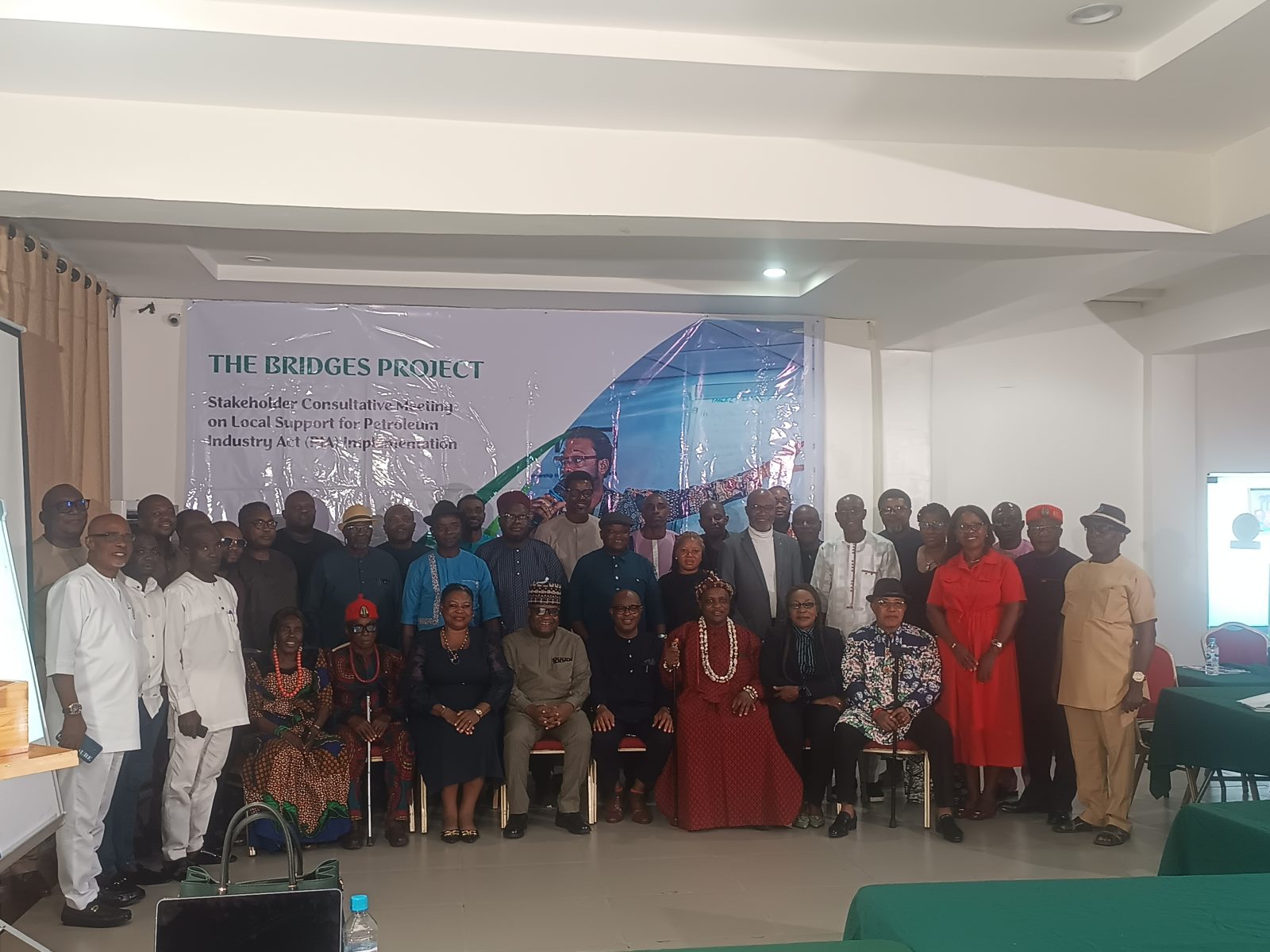Adopt Open Governance Model in your Activities – PIND, Stakeholders Urge HCDTs in Akwa Ibom

By Ekemini Simon
Foundation for Partnership Initiatives in the Niger Delta (PIND) together with stakeholders from Civil Society Organizations, host communities and government agencies have called on each of the Host Communities Development Trust (HCDT) in Akwa Ibom State to adopt open governance model in the management of their trust.
This model they said should be through creation of websites among other open channels for interaction with citizens, providing the public with insights into their activities thus instill public trust in how the HCDTs are managed.
The call was part of the Communique reached at the end of the stakeholder consultative meeting organized by PIND through their Bridges Project on Local Support for Petroleum Industry Act (PIA) Implementation held on Wednesday in Uyo.
The participants had observed that whereas there are transparency gaps in the management of the various HCDTs in Akwa Ibom State, transparency and accountability is vital to both settlors and the host communities to ensure that citizens have confidence in leadership as well make informed decisions especially as most Community Development Plans (CDPs) are shrouded in secrecy.
The stakeholders recommended that the Nigerian Upstream Petroleum Regulatory Commission (NUPRC) should increase its engagements with HCDTs in promoting transparency and accountability to ensure revenues generated are transparently disclosed as well mandate the settlors to publish their financial statements with clear line items to help communities determine the three (3) percent Operating Expenditure that will be paid to the trust.
They noted that when this is done, host communities will benefit equitably from the wealth generated from their domain.
The stakeholders asked that needs assessment be participatory for meaningful, impactful and community approved development outcomes.
They noted that Community Development Plans should be made accessible and must be legally binding with clear definition of roles and responsibilities for all parties, including communities and settlors with a mandate for periodic review in line with the regulation to ensure relevance.
Part of the Communique read “Specific strategies should be developed to increase women’s representation and other vulnerable groups in the HCDTs, with policies that reflect the 30 percent as enshrined in the PIA to ensure that women are active participants in decision making processes and in the development and execution of community development plans.
“The Akwa Ibom State House of Assembly should, of immediate priority, through the fiscal responsibility law ensure that each local government council while preparing its annual budget ensure that it is harmonized with the relevant MDA’s to avoid duplication of projects as enshrined in section 22(12) of the fiscal law.”
The stakeholders had noted that host communities bear the brunt of extractive activities as such they must be at the centre of negotiations for their rights
They commended PIND for taking the lead in ensuring that communities rights are protected.
Earlier, the Advocacy Manager of PIND, Dr. Chuks Ofulue highlighted the important role of HCDTs in ensuring the implementation of the PIA is in line with the reasons for its establishment.
He charged stakeholders especially those in the various organs of the Trust to remain committed to their communities’ development by being creative, inclusive and patriotic.
Ofulue assured that PIND is determined to continue providing the necessary support, guidance, and capacity-building programmes that will ensure that the Niger Delta reaps the full dividends of the PIA.







